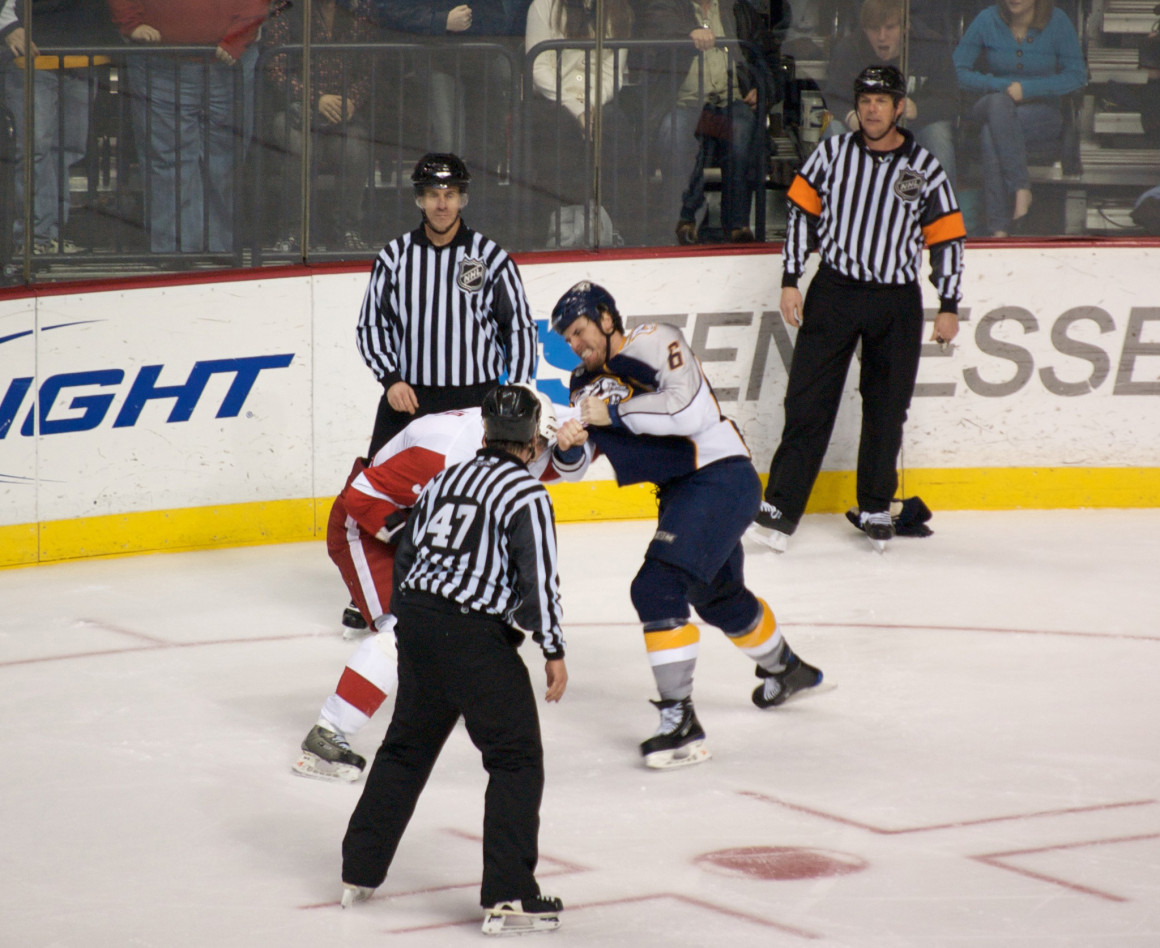
Enforcers must have a bigger role
By David Song, November 20 2014 —
Hockey isn’t a combat sport, but you can’t tell by watching.
Every once in a while, someone gets leveled by a titanic body check, and in seconds, the offender is engaged in fisticuffs with a strong, spirited enforcer coming to the defence of his stricken comrade. Sometimes it doesn’t even take a big hit to spark a fight. Two tough guys may simply lock eyes, exchange a few words, then drop the gloves — talk about things escalating quickly.
Fighting pumps up any hockey crowd and is one of the sport’s major draws. However, it’s also one of the sport’s major controversies.
Some say fighting is brutish and based on outdated ideals of gladiatorial glory that detract from the game. Some cite the inevitable concussions and broken bones as appalling injuries that don’t belong in the league.
And, of course, there is the case of Derek Boogaard, a seemingly invincible 6’7” enforcer who died at age 28 because fighting sent both his physical and mental health into a downward spiral.
Boogaard isn’t the only NHL enforcer to pass away before his time. Rick Rypien and Wade Belak, two of the league’s elite fighters, both died within four months of Boogaard. Their tragic deaths raise serious questions about fighting in hockey — ones that go beyond entertainment value or so-called honour.
Yet, other players who drop the gloves on a regular basis remain healthy, even flourishing, in their role. The key issue is not the presence of fighting in hockey, but the presence of enforcer culture.
Boogaard, Rypien and Belak were specialized enforcers, players who earned their roster spot by dropping the gloves. Contrast this with skilled grinders like Paul Gaustad, Brandon Prust and Deryk Engelland who are expected to contribute to their squads by playing key defensive roles as well. There are even accomplished scorers like Jarome Iginla and Milan Lucic who frequently fight to spark momentum for their teammates.
At the beginning of this season, the Toronto Maple Leafs sent Colton Orr and Frazer McLaren to the minors, electing to play without an enforcer. The Calgary Flames retained Brian McGrattan and Brandon Bollig, but expect both of them to play a little bit of hockey as well as throw down.
For the NHL and its athletes, this is a step in the right direction. As long as players are not pressured into one-dimensional roles, pushed beyond their limits and tragedies like Boogaard’s are less likely to occur.
If that’s the case, an injury obtained from a fight becomes an occupational hazard much like an injury from a slapshot to the face. That doesn’t make fighting any less controversial, but it allows the debate to safely go on now that both sides know more about what physically hurts a player, and what really hurts him in a far more meaningful way.
